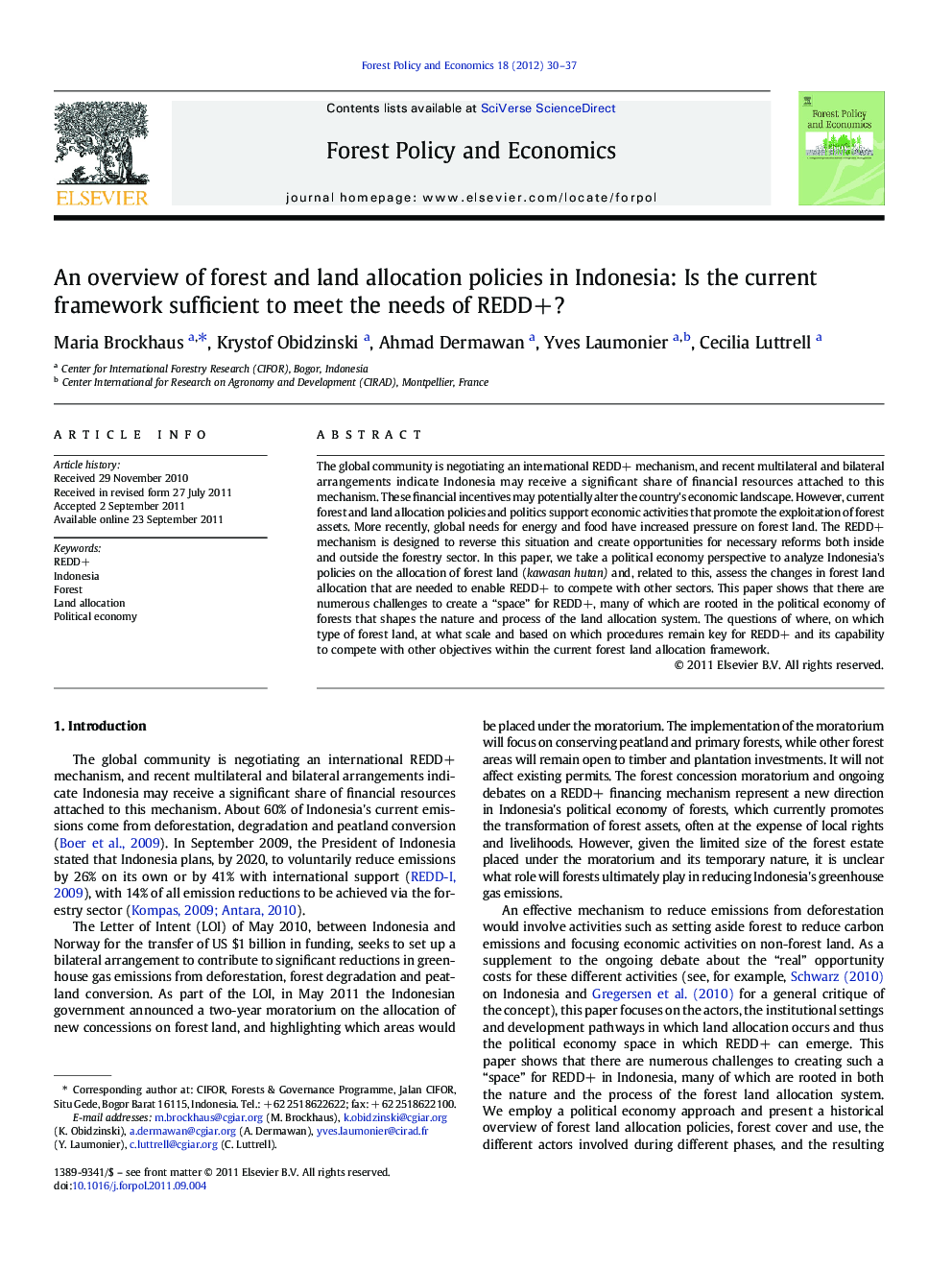| کد مقاله | کد نشریه | سال انتشار | مقاله انگلیسی | نسخه تمام متن |
|---|---|---|---|---|
| 91747 | 159840 | 2012 | 8 صفحه PDF | دانلود رایگان |

The global community is negotiating an international REDD+ mechanism, and recent multilateral and bilateral arrangements indicate Indonesia may receive a significant share of financial resources attached to this mechanism. These financial incentives may potentially alter the country's economic landscape. However, current forest and land allocation policies and politics support economic activities that promote the exploitation of forest assets. More recently, global needs for energy and food have increased pressure on forest land. The REDD+ mechanism is designed to reverse this situation and create opportunities for necessary reforms both inside and outside the forestry sector. In this paper, we take a political economy perspective to analyze Indonesia's policies on the allocation of forest land (kawasan hutan) and, related to this, assess the changes in forest land allocation that are needed to enable REDD+ to compete with other sectors. This paper shows that there are numerous challenges to create a “space” for REDD+, many of which are rooted in the political economy of forests that shapes the nature and process of the land allocation system. The questions of where, on which type of forest land, at what scale and based on which procedures remain key for REDD+ and its capability to compete with other objectives within the current forest land allocation framework.
► The framework for forest land allocation in Indonesia is challenging for REDD+.
► Land allocation is dominated by conflicting objectives and a lack of coordination.
► Development priorities favor the allocation of forest land for timber and oil palm.
► The forestry sector has not facilitated successful small-scale management models.
► Clarity over who has the right to make decisions over forest land allocation is key.
Journal: Forest Policy and Economics - Volume 18, May 2012, Pages 30–37